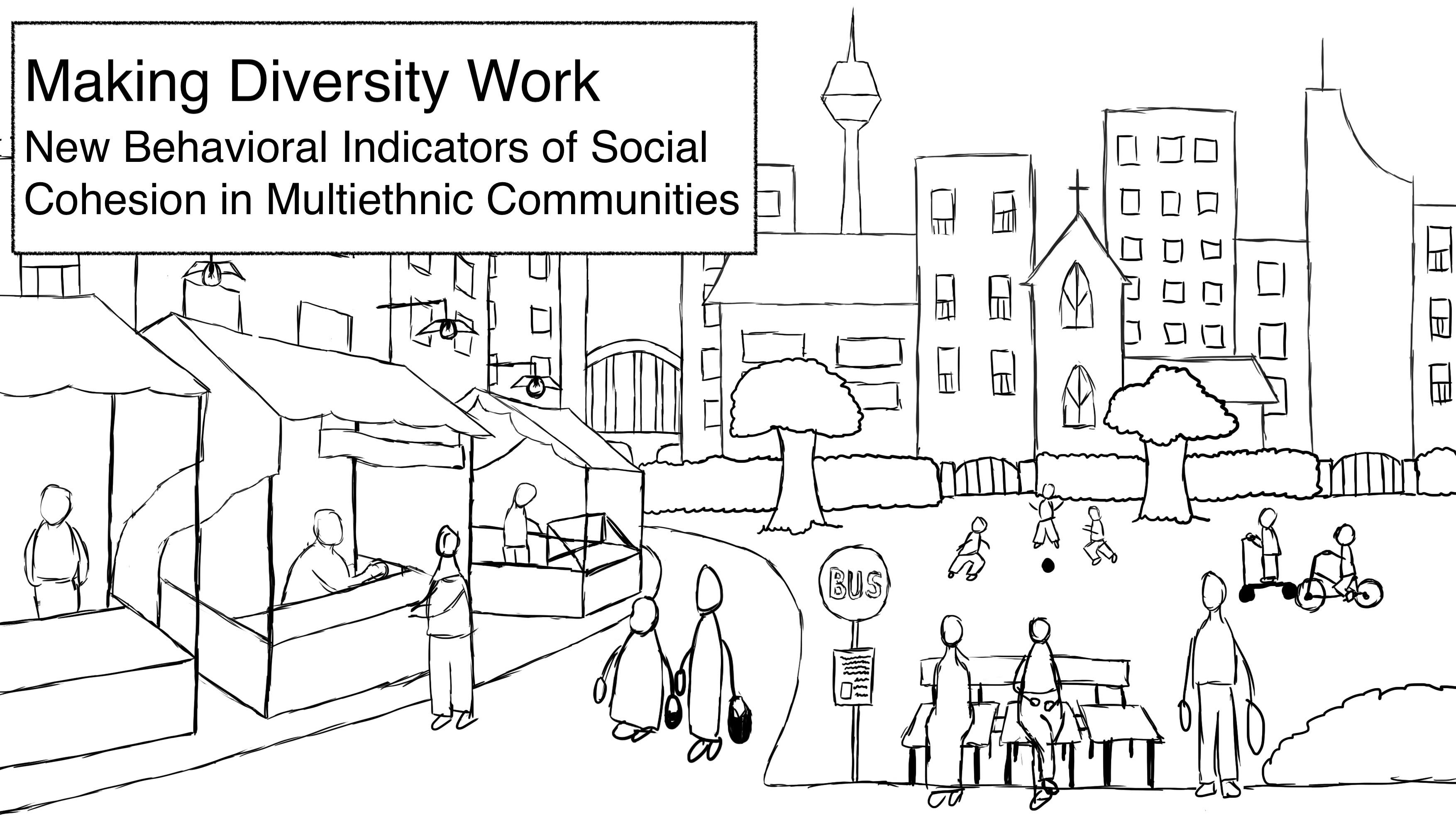Making Diversity Work

Recent trends in global migration have raised public concerns about the potentially negative consequences of ethnic diversity for social solidarity in Western societies. Few studies to date however have sought to explain how trust and cooperation can conversely be sustained in diverse settings. Against this backdrop, the Making Diversity Work project aims to create novel behavioral indicators of social cohesion across multiethnic German neighborhoods in order to analyze the emergence of positive community relations. In contrast to existing studies which predominately privilege comparisons between ethnically-homogenous and heterogeneous areas, a key contribution of this project is to focus explicitly on important unexamined differences between highly-diverse contexts in order to understand the conditions under which diversity may undermine or, conversely, promote cooperation.
Using innovative field experimental methods, this project will develop a sophisticated set of behavioral indicators to map variation in “prosocial” behavior across diverse urban areas. Further, this new data will be used to (i) systematically test novel theories about how different features of diverse neighborhoods contribute to local cooperation, (ii) disentangle the behavioral mechanisms – other-regarding preferences, social norms enforcement, and intergroup contact – underlying social cohesion in multiethnic settings, and (iii) develop a richer understanding of social relations that takes both natives’ and minorities’ experiences into account. Overall, results from this research will open up new scientific perspectives on cooperation in diverse communities and generate critical policy knowledge about how to “make diversity work” in an era of rapid demographic change.
This project is funded by the Emmy-Noether program of the German Research Foundation (DFG).